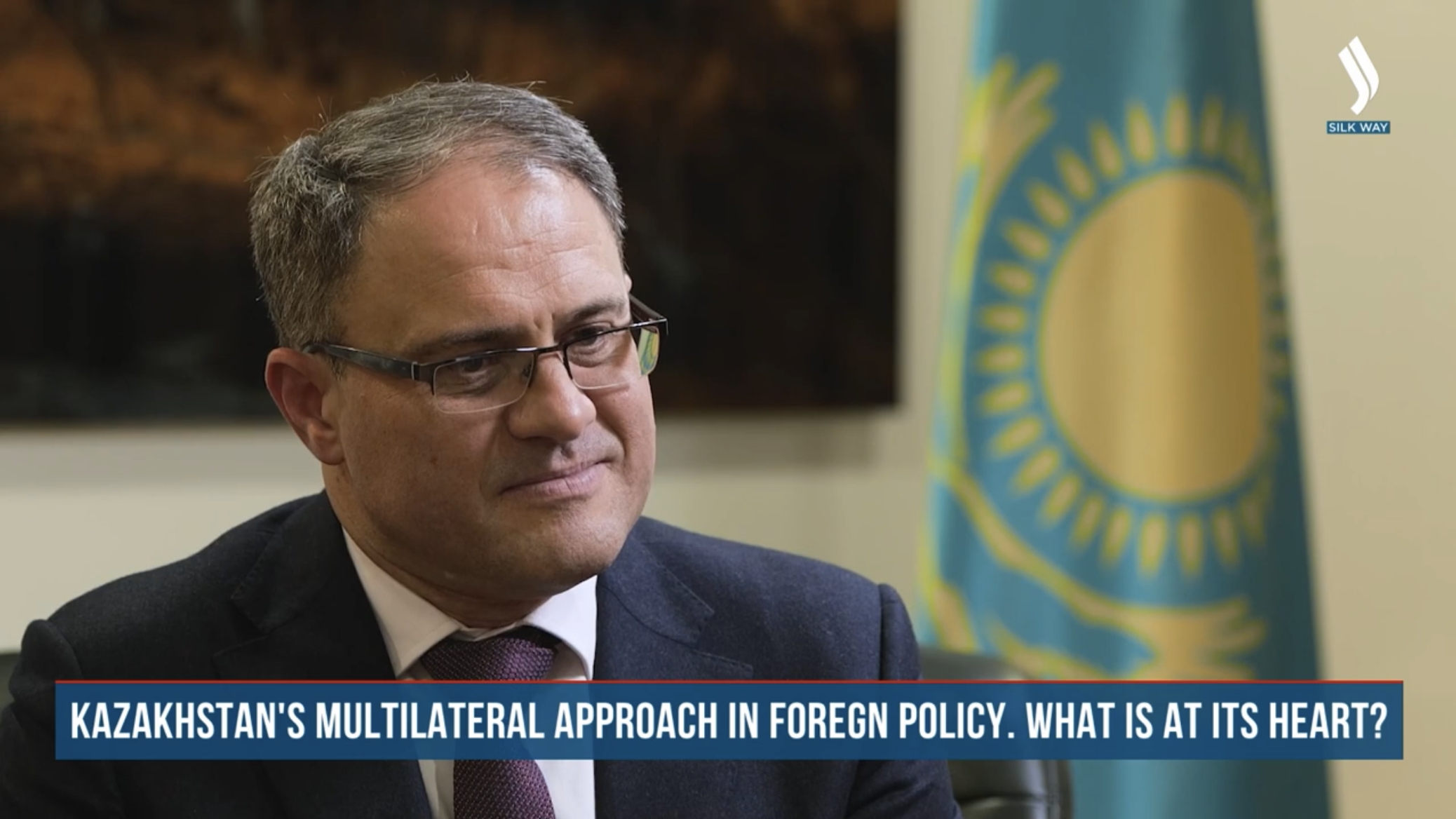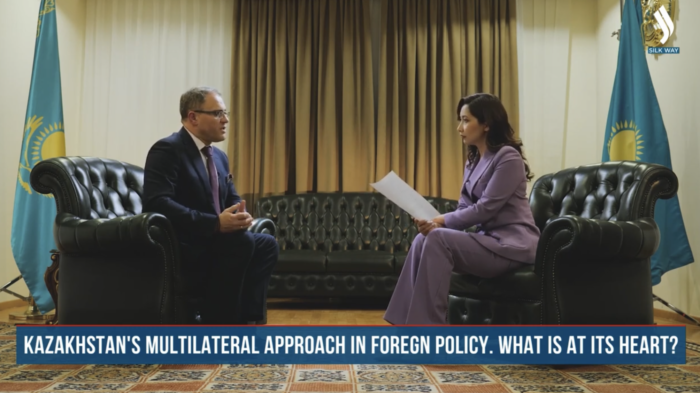ASTANA – Kazakh Deputy Foreign Minister Roman Vassilenko spoke about the meaning of 2023 for Kazakhstan’s foreign policy, how middle power countries can contribute to the restoration of dialogue at the global level, and cooperation prospects with the European Union (EU) in his interview with Jibek Joly TV channel, released on Dec. 8.

Photo credit: Screenshot from the interview.
In the interview, Vassilenko highlighted that over the past year, Kazakhstan’s foreign policy had gone into overdrive, and the relations with many partners worldwide had been strengthened.
“The reason for this very active foreign policy lies in the fact that after 30 years of independent development, Kazakhstan, as many countries of the world, finds itself in a very peculiar situation where we need to continue to pursue the multi vector foreign policy in a very different set of geopolitical environments,” Vassilenko said.
The international system is facing major challenges, and it is up to countries as Kazakhstan – middle power countries – that have positive, constructive, balanced relations with all neighbors near and far – to restore global dialogue, Vassilenko emphasized.

Photo credit: Screenshot from the interview.
According to Vassilenko, President Kassym-Jomart Tokayev welcomed 15 international leaders this year and paid visits to eight countries, including Germany, the United States, and Vietnam.
“The bottom line is that the foreign policy of Kazakhstan, which, by the way, also includes responsibility for attracting investment, has been very active this year. Kazakhstan has been able to ensure a proper beneficial external environment for its development in a very challenging international environment. Kazakhstan’s economy is now set to grow almost 5% this year. Last year, Kazakhstan attracted $28 billion in foreign direct investment and this year remained on par with last year’s figures – all these facts speak volumes about the efficiency of this peaceful, constructive, balanced multi vector foreign policy that the President has pursued and that we have been implementing as a foreign ministry,” Vassilenko outlined.
Addressing the cooperation with the EU countries, Vassilenko said that Kazakhstan’s position on the need for respect for the United Nations Charter, its fundamental principles of territorial integrity and respect for sovereignty, and Kazakhstan’s call for the peaceful resolution of conflicts conditioned the substantial interest on behalf of the EU to have even more robust and closer ties with Kazakhstan.
“We have been traditional partners in the oil and gas industry. We supply 9% of Europe’s needs. (…) Kazakhstan has also been in recent years a key supplier of uranium to the European Union, specifically to France, for example,” Vassilenko said, outlining that in recent years, greater focus has been paid to new areas of cooperation, as the EU is engaged in the so-called double transition: green transition and digital transition.
According to him, three specific areas are at the forefront of the discussions and cooperation with the European leaders. These are cooperation prospects in rare earth metals, green energy, particularly green hydrogen, and transport and logistics.
“Kazakhstan is a country that is strategically located in the heart of Eurasia, and the President has rightly on many occasions identified this as a unique advantage for Kazakhstan to become a hub in the heart of Eurasia by facilitating the East-West and North-South trade,” Vassilenko said, adding that the Middle Corridor has been the focus of the country’s discussion and country’s efforts.

